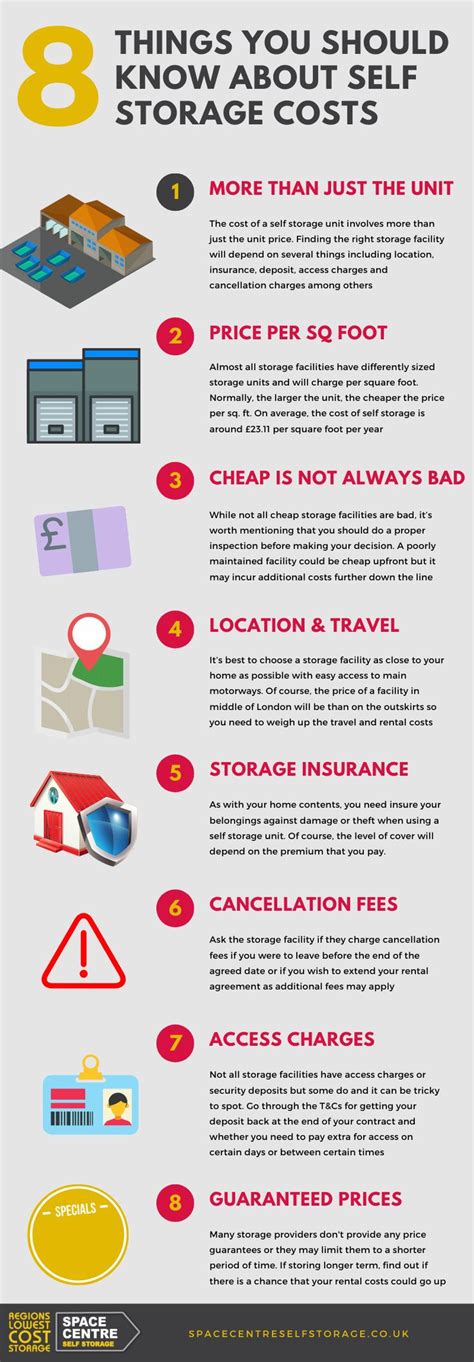Minimize Risk: A Realistic Look at Self-Storage Costs
Self-storage can be a lifesaver – whether you're downsizing, renovating, or simply needing extra space. But the seemingly simple act of renting a unit can quickly become costly if you're not careful. Understanding the true cost of self-storage involves more than just the monthly rent. This guide will help you navigate the potential expenses and minimize financial risk, ensuring your storage solution remains manageable and beneficial.
What are the typical costs of self-storage?
The cost of self-storage varies wildly depending on several key factors:
- Location: Urban areas generally command higher rates than rural locations due to higher demand and land prices. A unit in a bustling city center will cost significantly more than one in a smaller town.
- Unit Size: Naturally, larger units cost more. Accurately assessing your storage needs is crucial to avoid paying for unnecessary space.
- Facility Amenities: Features like climate control, advanced security systems (e.g., 24/7 surveillance, gated access), and convenient access hours all impact the price. While these perks offer peace of mind, they increase the overall cost.
- Lease Term: Shorter lease terms often result in higher monthly rates. Locking in a longer-term lease can sometimes secure a discounted rate, but consider your long-term storage needs carefully.
- Insurance: Most facilities require insurance to protect your belongings. While often optional, it's a crucial expense to account for, preventing financial ruin in case of damage or theft. Check your renter's or homeowner's insurance policy to see if it covers stored items before purchasing additional insurance through the storage facility.
What other hidden costs should I consider?
Beyond the monthly rent, several often-overlooked expenses can significantly inflate your overall storage costs:
- Administrative Fees: Many facilities charge fees for late payments, early lease termination, or other administrative tasks. Be sure to read the contract thoroughly to understand all potential fees.
- Packing Supplies: Boxes, tape, bubble wrap, and other packing materials add up. Budget for these expenses upfront to avoid unexpected costs.
- Transportation Costs: The cost of renting a truck or hiring movers to transport your belongings to and from the storage facility should be factored into your budget.
- Security Deposit: Many facilities require a security deposit, refundable upon moving out and provided the unit is left clean and undamaged.
How can I minimize my self-storage costs?
Several strategies can help you keep your self-storage expenses under control:
- Rent the Right Size Unit: Carefully assess your storage needs before renting. Renting a unit that's too large is a waste of money. Purge unnecessary items before storing to minimize the space required.
- Negotiate Your Rent: Don't hesitate to negotiate the monthly rent, especially if you're committing to a longer lease. Many facilities are willing to offer discounts for longer-term commitments.
- Shop Around: Compare prices and amenities at multiple storage facilities in your area. This will allow you to find the best value for your money.
- Consider Off-Peak Seasons: Storage rates can fluctuate throughout the year. Consider renting during the off-season (typically winter) for potentially lower rates.
- Utilize Online Resources: Websites and apps dedicated to comparing self-storage facilities can assist in finding the best deals and options in your area.
What are the potential risks of self-storage?
While convenient, self-storage carries some inherent risks:
- Damage or Theft: Despite security measures, there’s always a risk of damage to your belongings due to unforeseen events or theft. Adequate insurance is crucial to mitigate these risks.
- Accessibility Issues: Consider access to your unit – if you need frequent access, ensure the facility offers convenient hours and easy access to your unit. Inconvenient access can become costly in terms of wasted time and travel expenses.
- Contractual Obligations: Carefully read the lease agreement before signing. Understand the terms and conditions, particularly concerning fees, lease termination, and responsibilities.
How long should I keep my belongings in self-storage?
The length of time you'll need self-storage depends entirely on your circumstances. Before committing to a long-term lease, consider your storage needs realistically and determine if a shorter-term lease might be more appropriate and cost-effective.
What are the best ways to save money on self-storage?
This question has already been extensively addressed in the "How can I minimize my self-storage costs?" section above.
Is climate-controlled storage always necessary?
Climate-controlled storage is beneficial for temperature-sensitive items such as electronics, furniture, and artwork, protecting them from extreme temperatures and humidity. However, it is an added expense. If your items are not susceptible to damage from temperature fluctuations, a standard unit may suffice, saving you money.
By carefully considering all the factors outlined above, you can minimize the financial risks associated with self-storage and secure a cost-effective solution for your needs. Remember that thorough planning and research are key to a successful and affordable storage experience.

